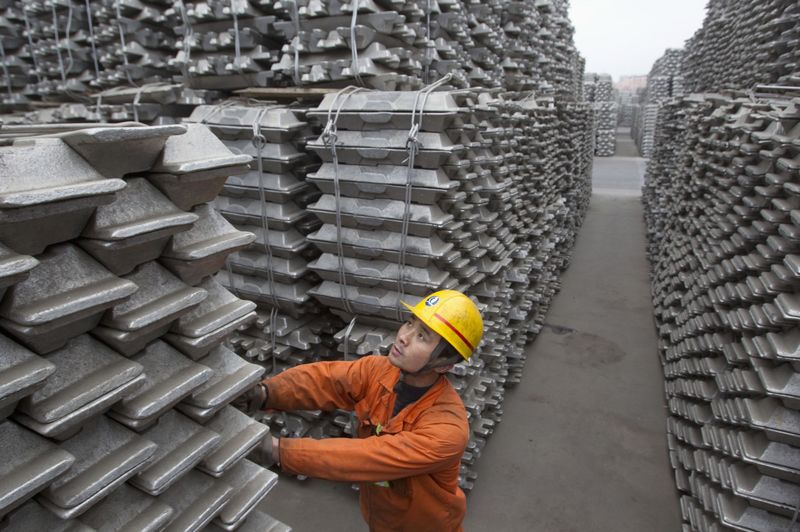By Lesley Wroughton
WASHINGTON, June 22 (Reuters) - China pushed back on Thursday at charges by U.S. manufacturers and labor unions that it has flooded the market with cheap aluminum and put U.S. producers out of business, saying unilateral punitive trade measures should not be used to try to remedy a global glut of the metal.
In a rare appearance at a U.S. government hearing by a Chinese official, Li Xie, director of China's export division at China's commerce ministry, called on the Trump administration to refrain from imposing curbs on Chinese aluminum imports.
He spoke at a hearing by the U.S. Commerce Department on the Trump administration's Section 232 investigation into whether foreign aluminum imports pose a threat to U.S. national security. The administration is also conducting a separate investigation into steel.
The administration is widely expected to impose tariffs or quotas on foreign aluminum and steel imports.
"Aluminum products imported from China are general products with civilian uses such as packing, roofing, road signs and consumer durables. None of these products implicate national security," said Li.
He noted that Chinese firms had not been invited to the hearing and said unilateral sanctions by the United States were not an answer to a global issue.
"Global overcapacity is the result of manufacturers, including weakness in global economic growth and sluggish demand. The solution to these challenges entail global joint efforts."
China had undertaken measures to eliminate excess domestic aluminum capacity, said Li. When asked by the panel what those measures were, he said he would submit a written report.
Testimony to the committee by American manufacturers and labor unions said the domestic aluminum industry had been brought to its knees by market-distorting policies in China.
Robert Scott, an economist with the Economic Policy Institute, said foreign aluminum imports threatened the entire U.S. industry which was hanging on "only by a thread" after a prolonged and steady decline in aluminum prices.
The threat was driven by growth of excess capacity and overproduction in China, which had increased by nearly 1,500 percent between 2000 and 2017, he said.
Official data shows that just 6 percent of America's aluminum exports come directly from China, but producers here argue the capacity expansion there has prompted a global price crash.
Michael Bless, president and chief executive for Century Aluminum Company, a large U.S. producer of primary aluminum, said the U.S. aluminum industry was "in danger of completely disappearing" because of global overcapacity.
"The domestic industry is in danger of completely disappearing," he said, adding that out of five aluminum smelters only two were operating at full capacity. In the last four years, employment and production have fallen nearly 60 percent, he added.
"China has no natural comparative advantage. Its smelters are among the highest cost producers in the world, they lose money, yet continue to expand," he added.
Gerd Gotz, director general of the 80-member European aluminum industry, said European manufacturers should be spared from any crack down as a result of the investigation.
"The vast majority of European imports have little to no link to U.S. national security but are largely used in commercial applications," he said.
